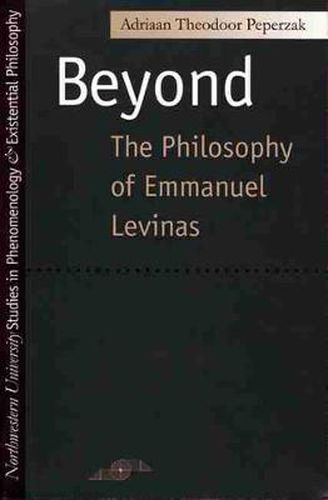Readings Newsletter
Become a Readings Member to make your shopping experience even easier.
Sign in or sign up for free!
You’re not far away from qualifying for FREE standard shipping within Australia
You’ve qualified for FREE standard shipping within Australia
The cart is loading…






Although Emmanuel Levinas is widely respected as one of the classic thinkers of our century, the debate about his place within Continental philosophy continues. In Beyond: The Philosophy of Emmanuel Levinas, Adriaan Theodoor Peperzak shows Levinas’s thought to be a persistent attempt to point beyond the borders of an economy where orderly interests and ways of reasoning make us feel at home–beyond the world of needs, beyond the self, beyond politics and administration, beyond logic and ontology, even beyond freedom and autonomy.
Peperzak’s examination begins with a general overview of Levinas’s life and thought, and shows how issues of ethics, politics, and religion are intertwined in Levinas’s philosophy. Peperzak also discusses the development of Levinas’s relations with Husserl and Heidegger, demonstrating thematically the evolution of both Levinas’s anti-Heideggerian view of technology and his critical attitude toward nature.
$9.00 standard shipping within Australia
FREE standard shipping within Australia for orders over $100.00
Express & International shipping calculated at checkout
Although Emmanuel Levinas is widely respected as one of the classic thinkers of our century, the debate about his place within Continental philosophy continues. In Beyond: The Philosophy of Emmanuel Levinas, Adriaan Theodoor Peperzak shows Levinas’s thought to be a persistent attempt to point beyond the borders of an economy where orderly interests and ways of reasoning make us feel at home–beyond the world of needs, beyond the self, beyond politics and administration, beyond logic and ontology, even beyond freedom and autonomy.
Peperzak’s examination begins with a general overview of Levinas’s life and thought, and shows how issues of ethics, politics, and religion are intertwined in Levinas’s philosophy. Peperzak also discusses the development of Levinas’s relations with Husserl and Heidegger, demonstrating thematically the evolution of both Levinas’s anti-Heideggerian view of technology and his critical attitude toward nature.